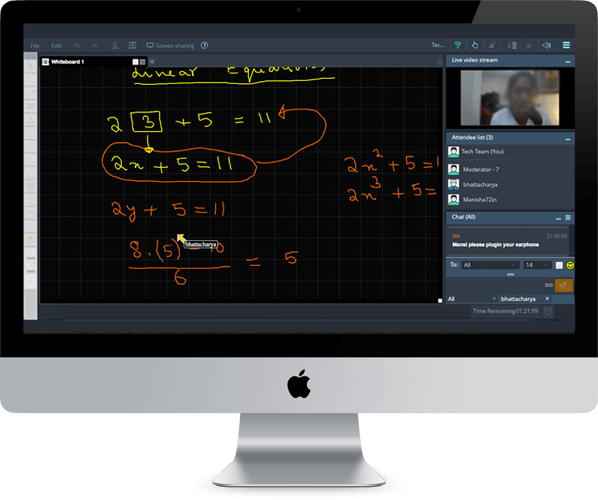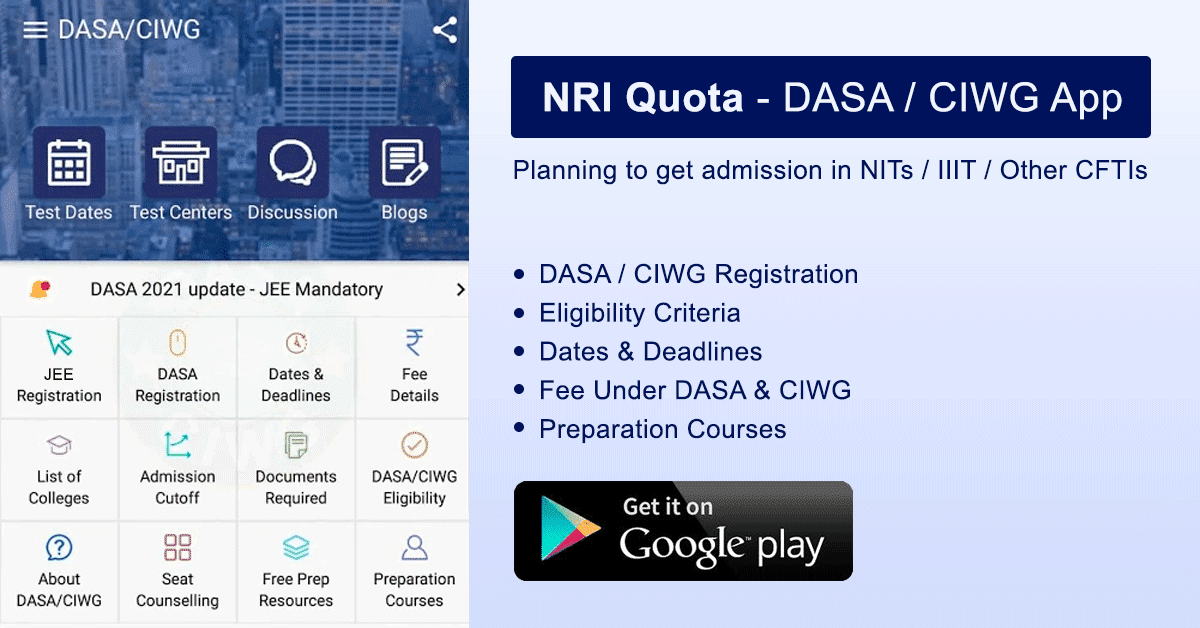Changes in JEE Main Syllabus & Exam Pattern
JEE Main - Syllabus, Exam Pattern & Eligibility Update:
For JEE 2021, many changes in Exam Pattern & Criteria have been introduced by NTA (approved by the Ministry of Human Resource Development).
According to the announcement made by Education Minister Ramesh Pokhriyal ‘Nishank’, this year, students are expected to get more flexibility due to the multiple sessions of the Engineering entrance exams.
JEE Main is going to conduct 4 times this year. Check here the JEE Main 2021 Important Dates.
JEE Main 2021: New exam pattern
JEE Main 2021 will follow a new exam pattern that will offer students more questions to choose from.
👉 This year, the paper will consist of two parts for each issue. Section A will have MCQs and Section B will have numeric questions.
👉 NRIs and Indian applicants will be given the option of answering any 5 of the 10 questions offered in Section B, and there will be no negative marking. This can prove to be a determining factor.
👉 NRIs and Indian candidates can answer any of the questions in Section B and will get up to 20 marks which would improve their chances of qualifying. Students should to take advantage of this opportunity.
JEE Main Paper 1 Exam Pattern 2021
|
Parameters |
JEE Main 2021 Exam Pattern Details |
|
JEE Main Paper 1 Exam Mode |
Computer-based test mode |
|
JEE Main Paper 1 Exam Duration |
3 hours (4 hours for persons with benchmark disabilities) |
|
JEE Main Paper 1 Subjects |
Physics, Chemistry, and Mathematics |
|
Total number of questions |
90 (need to answer 75 questions) (Each subject will have 20 MCQs and 10 numerical ques out of which 5 is must) |
|
Type of Questions |
20 Objective questions having 4 options each with only 1 correct option |
|
JEE Main Paper 1 2021 Marking Scheme |
JEE Main Marking Scheme for Paper 1 is- For MCQs - 4 Marks will be awarded for every correct answer and 1 Mark will be deducted for every incorrect answer For answer with a numeric value - 4 Marks will be awarded for every correct answer and 0 Mark will be deducted for every incorrect answer |
|
JEE Main Paper 1 Maximum Marks |
300 |
|
Medium of JEE Main Paper 1 |
English or Hindi (Candidates from Gujarat, Daman & Diu and Dadra and Nagar Haveli can opt for Gujarati as well) |
Get JEE Prep Help Download DASA / CIWG (NRI Quota eBook)
JEE Main 2021 Paper 2 Exam Pattern
|
Particulars |
JEE Main Exam Pattern Details |
|
JEE Main Paper 2 Mode of Examination |
Computer-based examination except for Drawing section in B.Arch |
|
JEE Main Paper 2 Language of Examination |
English or Hindi - For All Centre Cities English or Hindi or Gujarati- For Centre Cities in Gujarat, Dadra & Nagar Haveli and Daman & Diu |
|
JEE Main Paper 2 Duration of Examination |
3 hours |
|
JEE Main Paper 2 Number of Sections |
There are three sections in both B.Arch and B.Plan papers. B.Arch:
B.Plan:
|
|
JEE Main Paper 2 Type of Questions |
B.Arch- Type of questions for each section of B.Arch-
B.Planning- Type of questions for each section of B.Planning-
|
|
JEE Main Paper 2 Number of Questions |
B.Arch: 77 Questions B.Plan: 100 Questions |
|
JEE Main Paper 2 Total Marks |
400 Marks |
|
JEE Main Paper 2 Marking Scheme |
JEE Main Marking Scheme for Paper 2 is-
|
Below are the major changes that B.Tech/ B.Arch / B.Planning Aspirants must go through if you plan to appear for JEE Main from onwards.
For B.Tech:
Subjects: Physics, Chemistry & Maths
For the first time in 15 years of JEE, the number of questions for JEE Main Paper has been reduced and the types of questions have also been changed. Previously, Engineering (B.E. / B.Tech) aspirants had to solve three subjects (Mathematics, Physics and Chemistry) - each having 30 multiple choice questions. Now instead of 30 questions in all three subjects there will be 25 questions. There will be 20 multiple choice questions, while the remaining 5 questions will come with answers to the numeric value. The weightage of the three papers will be equal.
Recommended: JEE Main Free Mock test that will help you in your February 2021 JEE Main Exam -Know More
Also Check: Complete Step By Step JEE Main February 2021 Registration Procedure
Instant Download: JEE Preparation Books & JEE Past 40 Year Papers
Preparing for 2021-22? Crack JEE with Live and Interactive JEE Online Preparation Program (Live Classes, UNLIMITED Mock Tests, 24*7 Faculty Support & Much more) Know More
For B.Arch:
Subjects: Maths, Aptitude, Drawing Test
There will be fewer questions in B.Arch Paper, compared to years before 2021.
-
MCQs: 20 Questions
-
Objective Type: 5 Questions
-
Drawing Paper: 2 Questions
Earlier, B.Arch applicants had to appear for 3 drawing questions. The Aptitude Test will be of 50 marks.
For B.Planning:
Subjects: Maths, Aptitude & Planning
-
Now, Maths is the only compulsory subject that students must have in Grade 11th & 12th in order to be eligible for taking JEE (B.Planning).
-
Drawing Test will no longer be taken from B. Planning JEE Applicants.
-
The syllabus & exam pattern for Maths & Aptitude will be the same for B.Arch & B.Planning Papers.
-
For Planning, 25 Questions will be asked in the B.Planning Paper.
JEE syllabus changed this year, Knowing the important topics of latest JEE Main syllabus and the JEE Chapter-wise & Topicwise weightage will help Indian & NRI students prepare faster and score more.
JEE Main 2021- Paper 1 Syllabus (PCM):
Below mentioned is the latest syllabus given by NTA for JEE 2021 Main Paper 1- Physics, Chemistry & Mathematics.
JEE Maths 2021
|
Set, Relations & Functions |
Integral Calculus |
|
Complex Numbers & Quadratic Equations |
Differential Equations |
|
Matrices & Determinants |
Coordinate Geometry |
|
Permutations & Combinations |
3D Geometry |
|
Mathematical Induction |
Vector Algebra |
|
Binomial Theorem & its applications |
Statistics & Probability |
|
Series & Sequences |
Trigonometry |
|
Limit, Continuity & Differentiability |
Mathematical Reasoning |
JEE Physics:
|
Physics & Measurement |
Electrostatics |
|
Kinematics |
Current Electricity |
|
Laws of Motion |
Magnetic Effects of Current & Magnetism |
|
Work Energy & Power |
Electromagnetic Induction & Alternating Currents |
|
Rotational Motion |
Electromagnetic Waves |
|
Gravitation |
Optics |
|
Properties of Solids & Liquids |
Dual Nature of Matter & Radiation |
|
Thermodynamics |
Atoms & Nuclei |
|
Kinetic Theory of Gases |
Electronic Devices |
|
Oscillations & Waves |
Communication Systems |
MCQs on Experimental Skills
JEE Chemistry:
|
Physical Chemistry |
Inorganic Chemistry |
Organic Chemistry |
|
Basic Concepts |
Classification of Elements & Periodicity in Properties |
Purification & Categorization of Organic Compounds |
|
States of Matter |
Isolation of Metals |
Basic Principles of Organic Chemistry |
|
Atomic Structure |
Hydrogen |
Hydrocarbons |
|
Chemical Bonding & Molecular Structure |
s-Block Elements, Alkali & Alkaline Earth Metals |
Organic Compounds containing Halogens |
|
Chemical Thermodynamics |
p-Block Elements |
Organic Compounds containing Oxygen |
|
Solutions |
D & f-Block Elements |
Organic Compounds containing Nitrogen |
|
Equilibrium |
Coordination Compounds |
Polymers |
|
Redox Reactions & Electrochemistry |
Environmental Chemistry |
Biomolecules |
|
Chemical Kinetics |
|
Chemistry in Everyday life |
|
Surface Chemistry |
|
|
MCQs on Skills in Practical Chemistry
TestprepKart offers guidance and a range of resources to help students looking for schools and financial assistance.
Quick Connect: +91 8800 1234 92 / [email protected]
For specific queries on DASA / CIWG - Please share your query here: DASA / CIWG Queries
Useful JEE Main Links You Should Not Miss:
JEE Details You Should Not Miss :
JEE Coaching Centers :


.jpg)



